November 22, 2024 | 15:44 GMT +7
November 22, 2024 | 15:44 GMT +7
Hotline: 0913.378.918
November 22, 2024 | 15:44 GMT +7
Hotline: 0913.378.918
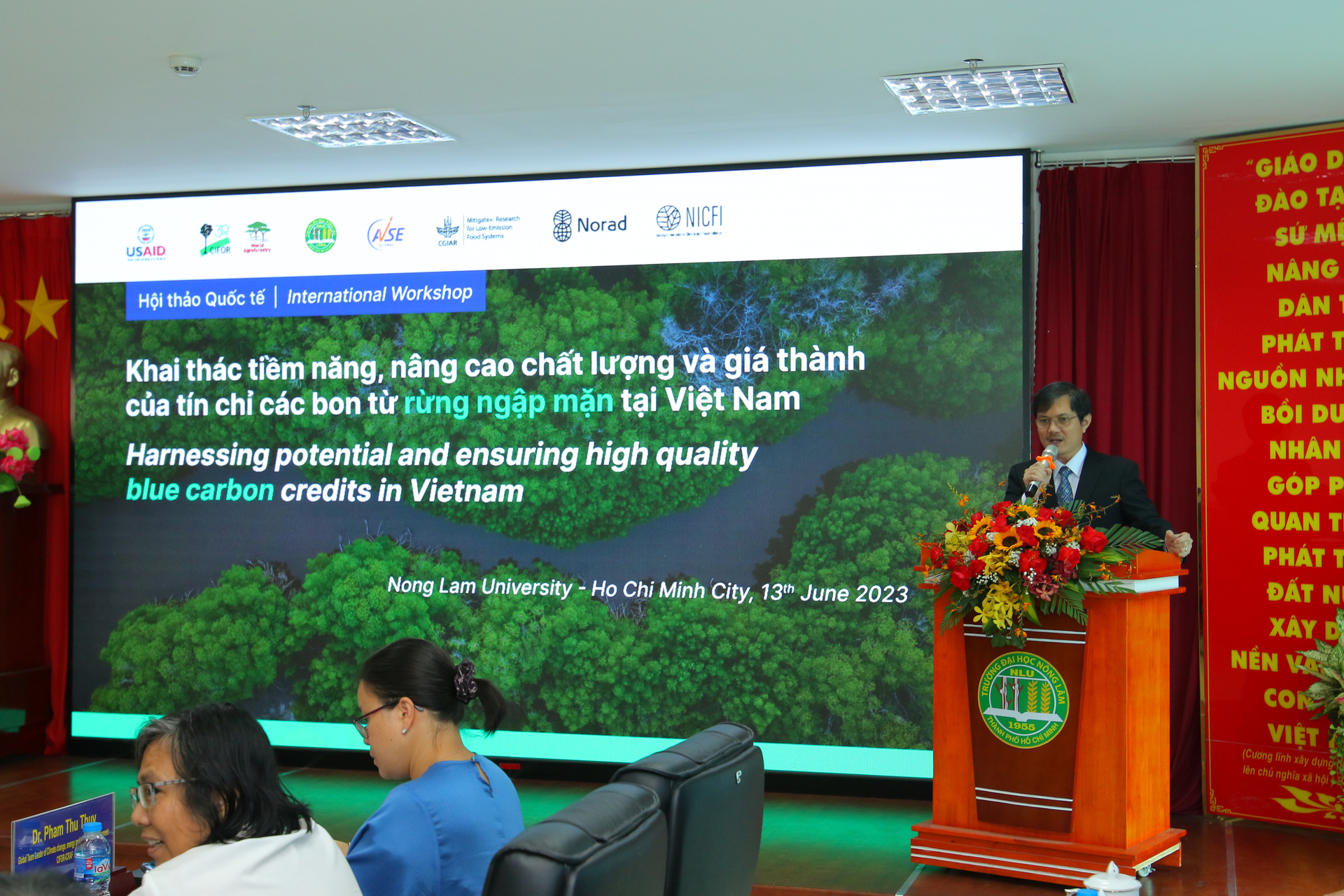
The workshop “Harnessing Potential and Ensuring high-quality blue carbon credits in Vietnam” was held on June 13 in Ho Chi Minh City.
A workshop entitled “Harnessing potential and ensuring high-quality blue carbon credits in Vietnam” was co-organized by Nong Lam University – Ho Chi Minh City, the Center for International Forestry Research (CIFOR), and the Association of Vietnamese Scientists and Experts (AVSE) on June 13 in Ho Chi Minh City.
Attending the conference are leading scientists, experts, and researchers, both international and national, as well as Vietnamese representatives from the Ministry of Finance, the Ministry of Agriculture and Rural Development, the Ministry of Natural Resources, the Ministry of Planning and Investment, the Economic Consul (First Secretary) from Australian Consulate-General in Ho Chi Minh City, representatives of US Forest Service and Canadian Embassy in Vietnam.
Sharing with audiences at the conference, Mr. Dominique Balasuriya, Economic Consul (First Secretary) from Australian Consulate-General in Ho Chi Minh City, and Assoc. Prof. Nguyen Tat Toan, Vice President of the Agroforestry University (Nong Lam University) - Ho Chi Minh City, stressed that the protection of coastal ecosystems and mangroves is not only considered a priority of Vietnam but also of the global community. It is worth noting that when we want to participate in the forest carbon market in general and, in particular, the blue carbon market including mangroves, we must clearly understand the rules of the market. They also emphasized that complying with international regulations and domestic laws of Vietnam is a must.
Professor Daniel Murdiyarso (2007 Nobel Peace Prize), former Deputy Minister of Environment of Indonesia and now CIFOR-ICRAF’s principal scientist, shared that countries are now integrating coastal and ecosystems. mangrove ones into its regulations for their national policy. Therefore, although the development of a carbon market for coastal ecosystems and wetland ecosystems, including mangroves, is shaping globally, it should always comply with current national regulations.

The conference took place in the context of a global decline in both quantity and quality of mangroves due to pressures from socioeconomic development and severe financial shortages.
Dr. Pham Thu Thuy, senior scientist who leads the Climate Change, Energy and Low-Carbon Development team at CIFOR-ICRAF, emphasized that joining the mangrove carbon market will not only help Vietnam implement its policies for reducing emissions but can also create a competitive advantage for Vietnamese goods, including seafood products in the international market, as export markets are turning to ones that only circulate low-carbon emitting and environmentally-friendly products.
At the conference, the Ministry of Finance shared information on a national program on establishing a carbon market in Vietnam which has been undergone following conclusions of the Prime Minister of Vietnam during the third meeting of the National Steering Committee for implementation of Vietnam's commitments at COP26. Audiences also got updated by the Department of Climate Change, Ministry of Natural Resources and Environment, on global carbon market, on current regulations for the carbon market and on forest carbon market in Vietnam. Participants also listened to Vietnam Forest Protection and Development Fund (Ministry of Agriculture and Rural Development) sharing practical experiences while implementing forest carbon markets in the country, helping audiences to better understand opportunities and challenges in realizing and operating programs, projects and markets for forest and mangrove carbon in Vietnam.
The conference took place in the context of a global decline in both quantity and quality of mangroves due to pressures from socioeconomic development and severe financial shortages. Developing countries including Vietnam have developed mechanisms and policies to mobilize new financial sources for the protection and development of mangroves as an important policy to implement the Paris Agreement and the Glasgow Declaration on Forests and Land Use. In parallel with the improvement of public administration policies, investors are also looking for opportunities to expand the carbon market for mangroves. In recent times, an increasing number of investors have been looking to Vietnam for opportunities to buy mangrove carbon credits.
The conference helped providing a panoramic view for projects and programs on forest carbon in Vietnam, assisting policymakers and stakeholders in exchanging information, updating the international and Vietnamese legal framework, and enhancing market, technical and social requirements of the Mangrove Carbon Market. Besides, more than 200 participants also had chance to join a one and a half-day training course on June 14–15 for “Designing and implementing effective, equitable blue carbon policies and projects “, which was co-organized to support Vietnam and the 13 Mekong Delta provinces in designing and implementing effective mangrove carbon projects for gaining access to sustainable finance.
Translated by Linh Linh
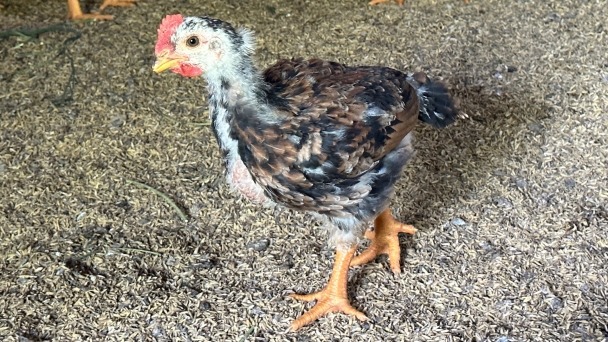
(VAN) Aware of the danger of antibiotic resistance, Phuong applies biosecurity farming solutions. The recent batch of chickens almost did not need antibiotics.
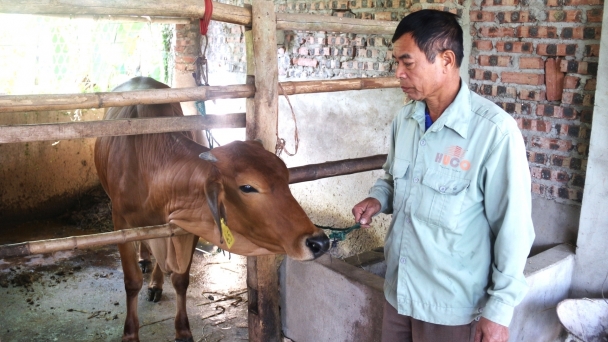
(VAN) While the weather is still warm, cattle farmers have already renovated their barns and prepared tarpaulins to keep their cattle strong during the winter.

(VAN) Wolverine Packing Co. is recalling more than 167,000 pounds of ground beef shipped to restaurants due to possible E. coli contamination.
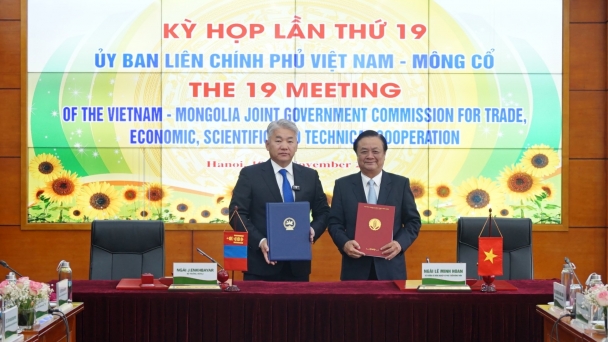
(VAN) On November 21, the Vietnam - Mongolia Intergovernmental Committee convened for its 19th session to deliberate on strategies to enhance bilateral cooperation's depth, substance, and efficacy.
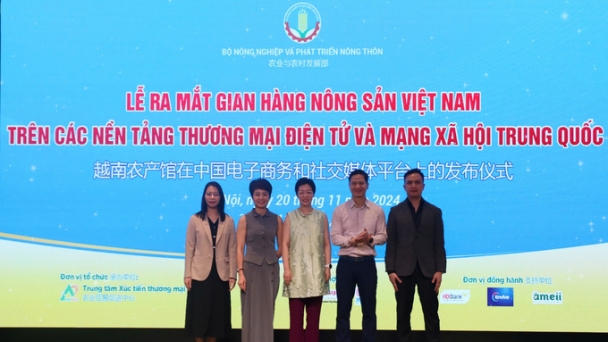
(VAN) The Vietnamese agricultural products stall aims to connect with consumers in the Chinese market through short videos and livestreaming.
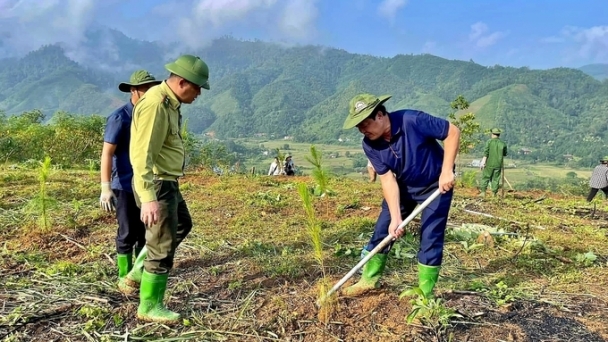
(VAN) The international carbon market is highly dynamic, reaching nearly USD 1,000 billion, requiring Vietnam to make a significant transition.
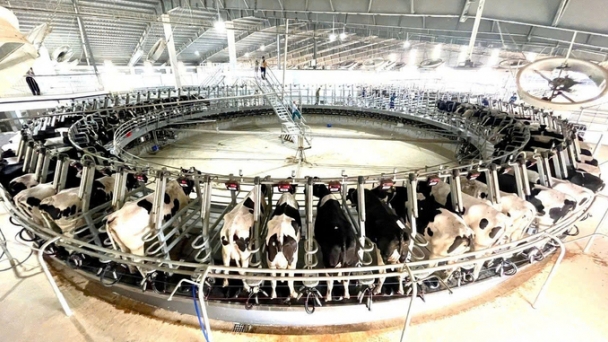
(VAN) Biosafe farming lessens many farm owners’ worries about diseases. Thanh Hoa also focuses on this direction to develop a sustainable livestock industry.